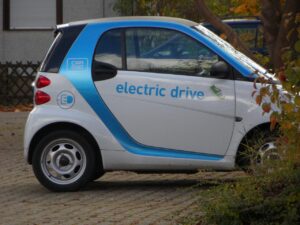
Home / EV Charging News / Advancements in EV Battery Technology
Electric vehicles (EVs) have emerged as a transformative force in the automotive industry, offering sustainable mobility solutions to combat climate change and reduce reliance on fossil fuels. At the heart of this revolution lies EV battery technology, continuously advancing to meet the demands of range, performance, and sustainability. In this article, we delve into the latest advancements in EV battery technology, exploring innovations that are shaping the future of electric transportation.
The evolution of EV batteries traces back to early technologies like lead-acid batteries, which provided limited range and performance. The shift to nickel-metal hydride (NiMH) and lithium-ion (Li-ion) batteries marked significant milestones, offering higher energy densities and longer driving ranges. These advancements laid the foundation for today’s modern EV batteries, which continue to evolve rapidly.
Presently, Li-ion batteries dominate the EV market due to their high energy density, rapid charging capabilities, and relatively long lifespan. However, challenges such as range anxiety and charging infrastructure limitations persist. Manufacturers are actively addressing these challenges through continuous research and development in battery chemistry, energy storage materials, and charging technologies.
Recent years have witnessed remarkable advancements in battery chemistry, with a focus on improving energy density, charging speeds, and safety. Solid-state batteries, for example, offer higher energy densities than traditional Li-ion batteries while enhancing safety and reducing the risk of thermal runaway. Other developments include lithium-sulfur (Li-S) batteries and lithium-air batteries, each with unique advantages and challenges.
Increasing the energy density of EV batteries is paramount for extending driving ranges and enhancing overall vehicle performance. Advancements in electrode materials, such as silicon anodes and graphene-based composites, contribute to higher energy densities without compromising battery stability. These improvements translate into EVs that can travel longer distances on a single charge, addressing one of the key barriers to widespread adoption.
Fast-charging technologies play a crucial role in making EVs more practical for everyday use. High-power chargers and ultra-fast chargers are becoming more prevalent, significantly reducing charging times and improving driver convenience. However, managing fast-charging processes to minimize battery degradation remains a focus area for industry experts and researchers.
The integration of advanced Battery Management Systems (BMS) is essential for optimizing battery performance, efficiency, and safety. Modern BMS solutions incorporate sophisticated algorithms for state-of-charge monitoring, thermal management, and predictive maintenance. These systems help prolong battery lifespan, ensure reliable operation, and enhance overall EV performance.
Safety remains a top priority in EV battery technology. Innovations such as fire-resistant materials, active cooling systems, and robust thermal management techniques mitigate risks associated with battery overheating and thermal runaway. Moreover, efforts towards sustainable battery manufacturing, recycling initiatives, and circular economy practices aim to reduce environmental impact and promote a greener EV ecosystem.
Advancements in EV battery technology are seamlessly integrated into vehicle platforms to optimize performance and user experience. Battery advancements influence EV drivetrain configurations, weight distribution, and overall vehicle dynamics, resulting in more efficient and agile electric vehicles. Collaborations between automakers and battery manufacturers drive innovation in battery-vehicle integration, ensuring compatibility and reliability.
Looking ahead, the future of EV battery technology is promising. Continued research and development efforts focus on pushing the boundaries of energy density, charging speeds, and environmental sustainability. Emerging technologies such as solid-state batteries, graphene-based batteries, and beyond hold immense potential to revolutionize the EV landscape further. These innovations, coupled with improvements in charging infrastructure and supportive policies, signal a bright future for electric mobility.
Advancements in EV battery technology are driving the electrification revolution, making EVs more accessible, practical, and environmentally friendly. From higher energy densities and faster charging speeds to enhanced safety and sustainability, the progress in EV batteries is reshaping the automotive industry. As innovation continues and barriers are overcome, electric vehicles are poised to play a pivotal role in a cleaner, greener transportation future.



